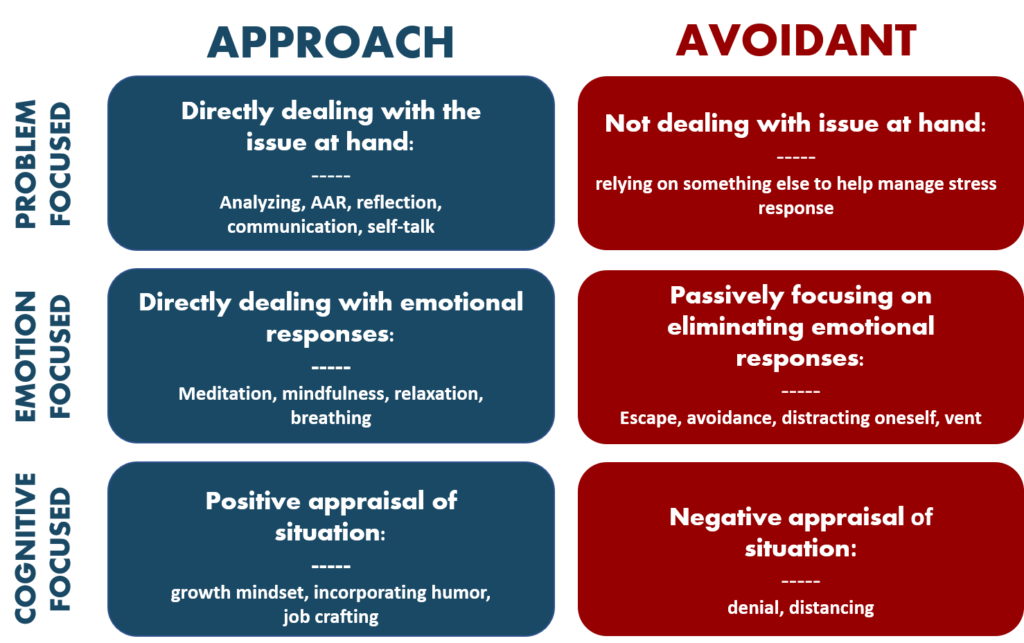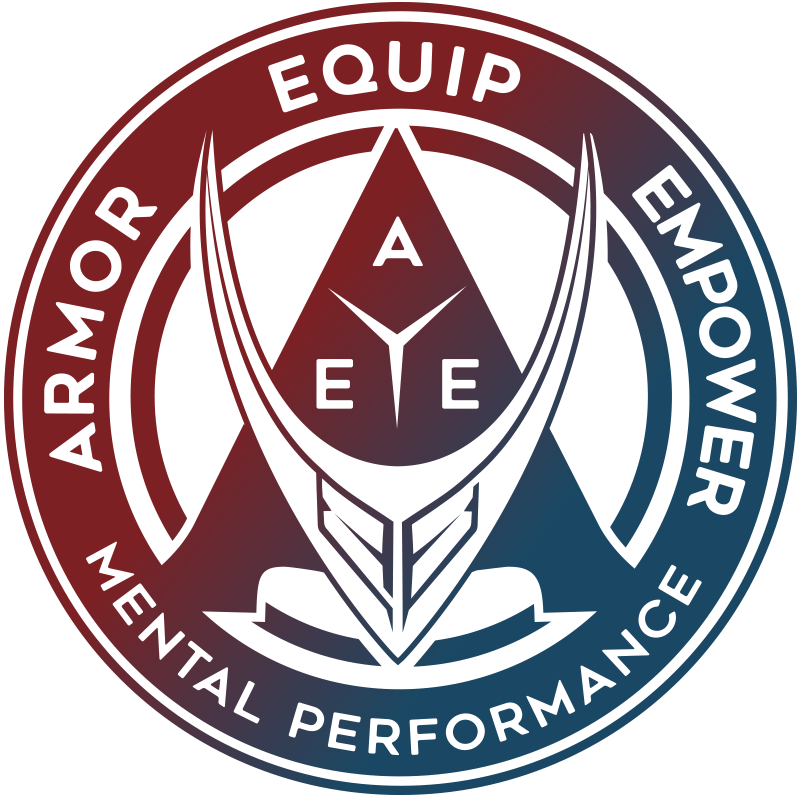lesson 3:
coping strategies
Before we start, let's look at how you cope!
Approach coping vs. avoidant coping
Approach oriented coping refers to concerted efforts to deal with the situation and is associated with less stress.
Avoidance coping responses do not transform the situation or solve the problem resulting in higher levels of perceived and actual stress.
Coping strategies
Problem focused (behavioral) – Where the individual seeks to find out information on the problem and learn new skills to manage the problem. Problem-focused coping is aimed at changing/eliminating and properly managing the source of stress. Implementation of the mental skills discussed during resilience.
Emotion focused – Seeking social support, release of pent up emotions, distracting oneself, avoidance.
Cognitive focused (appraisal) – Changing the way you think (growth mindset as an example), incorporating humor (finding the humor in the situation); denial.

Adaptive vs. maladaptive coping
Adaptive coping
Maladaptive coping
Maladaptive coping is also known as “negative techniques” or “non-coping”. Yes, it DOES WORK! It reduces symptoms of short-term but maintains and even strenghtens the original stressors.
Maladaptive coping is not effective in managing stressors, therefore, the “real problem” does not get solved out.
Maladaptive coping is what you DO NOT WANT long-term as this is what leads to burnout.
Maladaptive emotion-focused coping
Examples of maladaptive coping
Dissociation (compartmentalization) – often associated with PTSD or soon to be called PTSS
Sensitization – anticipating anxiety-filled/stressful events, as a result of past stressful events as a protective measure to prevent them from occurring in the first place; oversensitive to stressful events
Escape – alcohol/drug use, sleeping too much, over-eating
Rationalization – “I failed because I don’t have the abilities or because I’m not a lucky person”, making excuses
Proactive vs. reactive coping
Planning ahead for circumstances that might derail you is called proactive coping. It refers to a set of processes through which people detect potential stressors and act in advance with adaptive coping strategies to prevent them or to mitigate their long term impact.
Why to be proactive?
When we are under stress, our decision making abilities deteriorate. This might lead to maladaptive coping.
When we plan → we more likely stick with the planned adaptive coping. With time, adaptive coping becomes automatic to us. We re-learn the new habits of adaptive coping.
